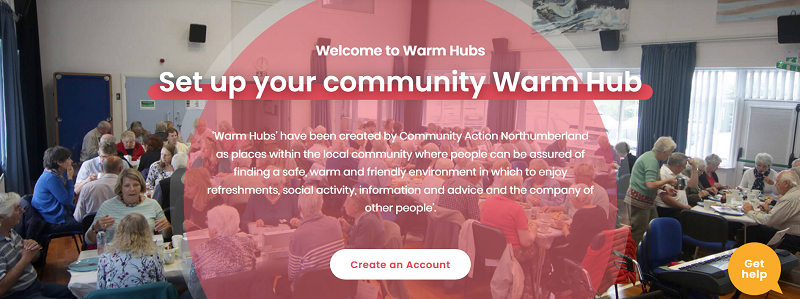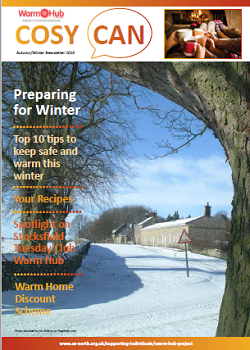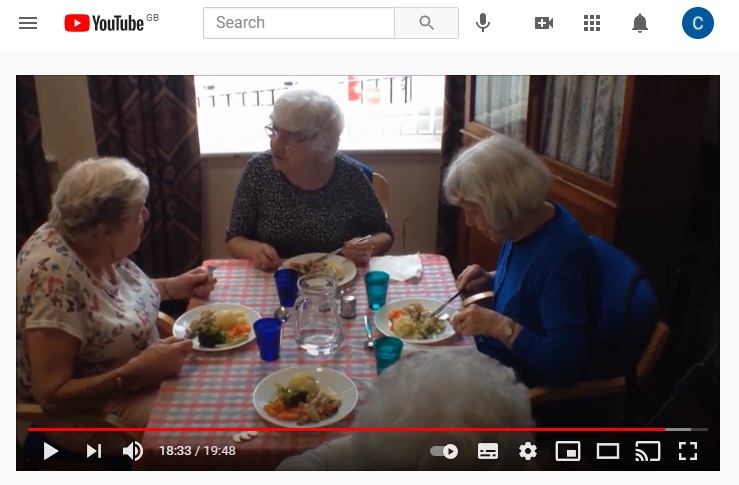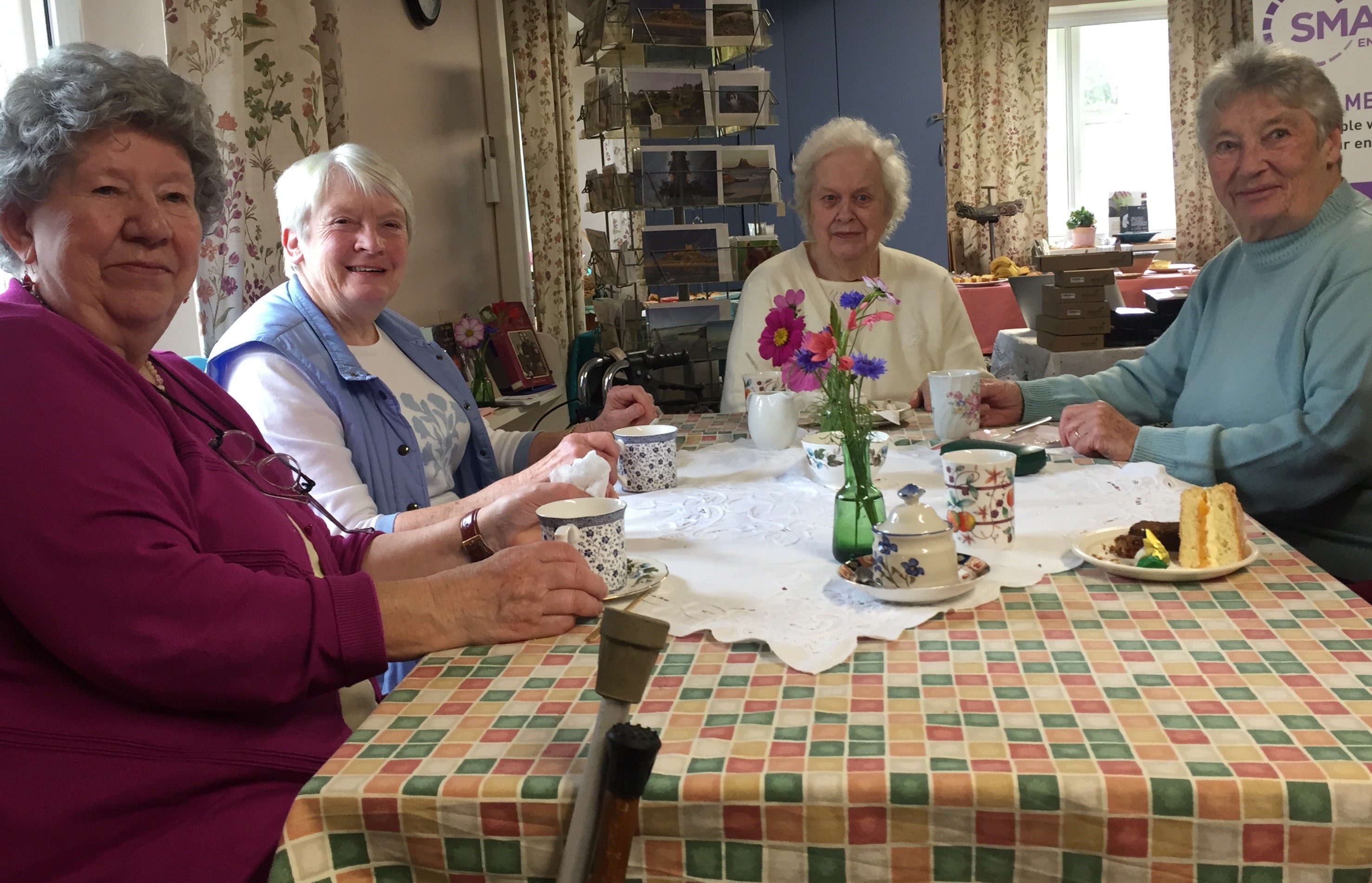Warm Hubs

What is a Warm Hub?
Warm Hubs were created in 2014 by CAN as places within the local community where people can be assured of finding a safe, warm and friendly environment in which to enjoy refreshments, social activity, information and advice and the company of other people.
View the current list of Warm Hubs in Northumberland
Why is this project needed?
To tackle fuel poverty and rural isolation
Northumberland is one of the most sparsely populated counties in England with just 63 people per square kilometre. 40.7% of Northumberland’s population – 151,885 people live in rural areas (defined as small towns & fringes, villages, hamlets and isolated dwellings). Of these more than 20% are over the age of 65, 15,075 people report themselves as having a limiting long-term illness and 17,550 people are income deprived.
There is a nationwide agenda to tackle the problems associated with fuel poverty but rural isolation presents a significant barrier to reaching many of those most in need. This project seeks to overcome this barrier. CAN has a long history of working with rural communities and has a strong network of links with community anchors such as parish councils and village halls.
We believe that village halls and other community buildings provide a natural access point through which to reach local communities.
Warm Hubs - your questions answered
The following video showcases our Warm Hubs project explaining all about them.
CAN’s award-winning Warm Hubs project was showcased at a conference held in Newcastle on 17th October 2019. Delegates from as far afield as Surrey came to find out about Warm Hubs and to discuss how other parts of the UK might start to benefit from the Warm Hub approach.
This video was made at a conference we ran on Warm Hubs for stakeholders to find out more about them. It answers a lot of the questions people have about Warm Hubs.
How can a venue become a Warm Hub?
Community Action Northumberland works with village halls and other community buildings to ensure that:
- The building is ‘fit for purpose’. CAN staff will support the management committee to undertake risk assessments, energy audits and accessibility checks. A small grant can be made available to carry out simple upgrades as well as support to find funding for more extensive work
- Governance and policies are in place
- Appropriate insurances and licences have been acquired
- Suitable volunteer recruitment processes
- Volunteers receive ongoing support and training in Dementia Awareness, Food Safety, Equality and Diversity, First Aid and more.
How are the Warm Hubs run?
The scheme is very flexible and each Warm Hub is run by local people for local people – ensuring that the scheme best meets the needs of their own community.
CAN staff are available to offer ongoing advice and support on a range of issues, including funding.
Who do I contact if I want to be involved?
To set up a Warm Hub in Northumberland contact Christine Nicholls at christinenicholls@ca-north.org.uk or phone 07827 403837.

I want to set up a Warm Hub scheme outside Northumberland
We have created the Warm Hubs Toolkit - providing guidance on how to set up and run a Warm Hub scheme. It is aimed at support agencies across the UK such as local authorities and rural charities. It provides training via a toolkit of guidance to ensure the Warm Hubs they’ll be supporting meet the Warm Hub principles. The toolkit is open to any organisation wanting to support the development of Warm Hubs by other groups in their area. These groups will comprise of volunteers with a building open to the public, who are willing to support the Warm Hub principles.
Visit www.warmhubs.com to access the toolkit. Our thanks to Northern Gas Networks for providing funding for this toolkit.
Cosy CAN newsletter

Cosy CAN is the Warm Hubs newsletter for Northumberland.
You can download previous editions below:

